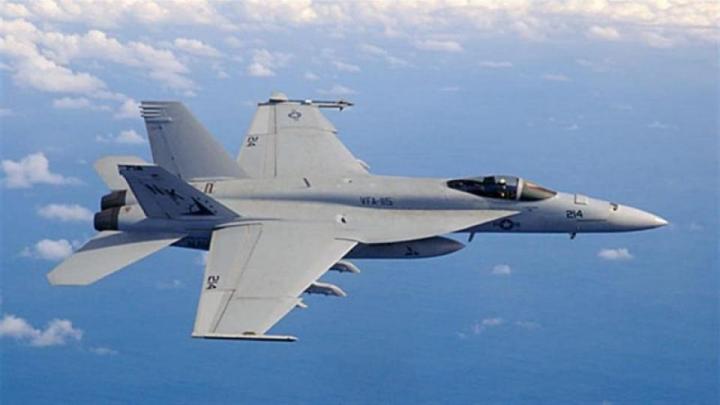
For years, it was taboo for funds to put money into arms manufacturers. Now, with the focus shifting to the protection weapons provide rather than the damage they cause, they are coming back into the picture as an investment. Asset managers fear being left behind in the market otherwise.
Those who want peace must prepare for war, wrote the Roman author Vegetius some 16 centuries ago. And if war does happen, there is still a way back to peace. For what else is war but the continuation of politics by other means, to use the words of 19th-century Prussian military strategist Carl von Clausewitz.
Today, these age-old propositions are arguments why asset managers and institutional parties such as pension funds should still be allowed to invest in the defence industry. Until recently, this was taboo in Belgium, said Marc Van de Gucht, director general of the Belgian fund federation Beama. “In almost no fund today there are arms companies.”
Debate flares up
Change seems to be on the way. “With multiple armed conflicts taking place on Europe’s doorstep, the debate about financing the defence industry is flaring up again,” said investment strategist Johanna Schmidt of Triodos Investment Management. “Pressure is growng to spend more on weapons. And to raise the billions needed, many eyes are on investors, including individuals.”
In several countries, governments are calling on institutional investors to put money into this previously despised sector. Dutch outgoing Defence Minister Kajsa Ollongren, for instance, stated a few weeks ago that pension funds that invest less in arms production have become ‘part of the problem’.
Is it a lack of solidarity not to invest in the defence industry at a time when our freedom and that of others is at stake? A fair question, thinks Schmidt, who also gives a clear answer. ‘Our role is to move capital into companies and projects that have a lasting positive impact on society and the environment. Investing in weapons means profiting from war and destruction. For Triodos, that’s an unethical choice.’
For others, it is a bigger struggle. A large asset manager responded to Investment Officer that it is still being debated internally and therefore there is no unambiguous position for the time being. A major bank is “reviewing” its policy on weapons investments, but “that is still in the crystallisation phase”. Neither wanted to be named.
The demand for more arms investments is not so much from individual clients, said Guy Janssens, head of investment specialists at BNP Paribas Fortis. “The number of questions about this is really negligible. We easily get 50 times more questions about investing in gold, and the same goes for commodities and artificial intelligence.”
Underperforming
Those looking to invest specifically in the defence companies market may be advised to do so through trackers that follow this sector. One of these is VanEck’s Defense ETF, which holds around €500 million. ‘The fastest-growing ETF we have ever launched in Europe,’ said the US asset manager. It excludes controversial weapons such as cluster munitions and anti-personnel mines.
A more important explanation for asset managers’ interest in weapons investments is that funds that exclude such companies underperform the benchmark that does include them. For example, look at the stock market trajectory of German conglomerate Rheinmetall, which makes weapons, tanks and ammunition. That share price has gone times six since early 2022. At Swedish defence group Saab, it is almost times four, at French rival Thaler times two.
It is to be expected that such companies will also do extremely well on the stock market in the coming years. After all, the main drivers of their order books are governments, which are often in the process of significantly increasing their defence spending after years of underinvestment.
Opening the door
Asset managers’ struggles include clients in discretionary management who have opted for an ESG profile. In this sustainability policy, investors attach great importance to the environmental and social impact of corporate activities, as well as the quality of corporate governance.
Arms manufacturers have so far been barred there, but this need not remain so. There are calls to open the door to these investments. The focus then is not on the damage weapons can cause, but on the protection they can offer. For instance, against autocratic regimes such as Russia.
A healthy debate, said Philippe Gijsels, chief strategist at BNP Paribas Fortis. “We all want a better world, sustainable and without wars, but the reality is different. Then you run into questions like the ones on the table now, and you have to try to solve them without being dogmatic.”
Following ‘greenwashing’, where products are presented as more sustainable than they are, is there also a danger of ‘peacewashing’? So investing in arms companies under the guise of doing good? “There is always a tension between what is good for people and what is financially good,” said Gijsels. “You have to find a way to reconcile those.”
Common position
With rising geopolitical tensions, see also the conflict between Israel and Palestine, the issue of investing in defence will only gain pertinence. It is therefore desirable that there is a line in what banks and asset managers do, the industry echoes.
However, with the exception of funds that have the Towards Sustainability label, where the arms industry is completely excluded, there is no common position on the possibility and conditions of investing in the arms and defence sector, says Beama’s Marc Van de Gucht. “Ideally, there will be a common position at sector level, but it is far too early for that now.”
For now, the different positions seem to be quite far apart. Exclusion of weapons was long a widely accepted exclusion criterion in the investment industry, noted Schmidt. “Now there is a danger of a norm shift to broad acceptance and willingness to invest in the defence industry, both in times of war and in times of peace.”